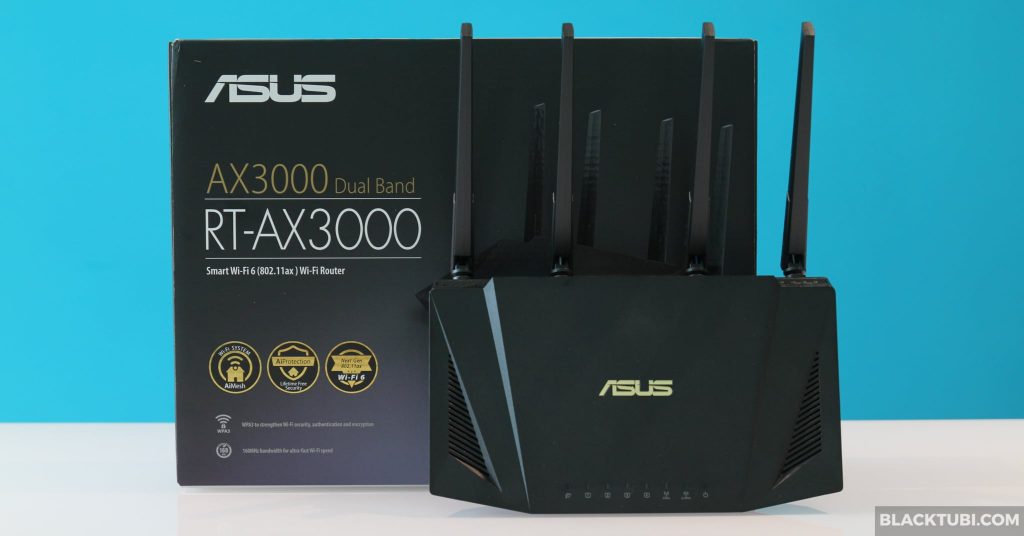
Table of Contents
ASUS RT-AX3000 is a dual-band Wi-Fi 6 capable wireless router recently announced by ASUS. It is similar to ASUS RT-AX58U and currently available in Malaysia for RM1099. There’s also a 3 years one to one exchange warranty included with the router.
ASUS is not trying to reinvent the wheel with the RT-AX3000. It looks like a normal wireless router with 4 non removable external antennas. The design itself is really basic and simple. The only special element is the golden ASUS logo.
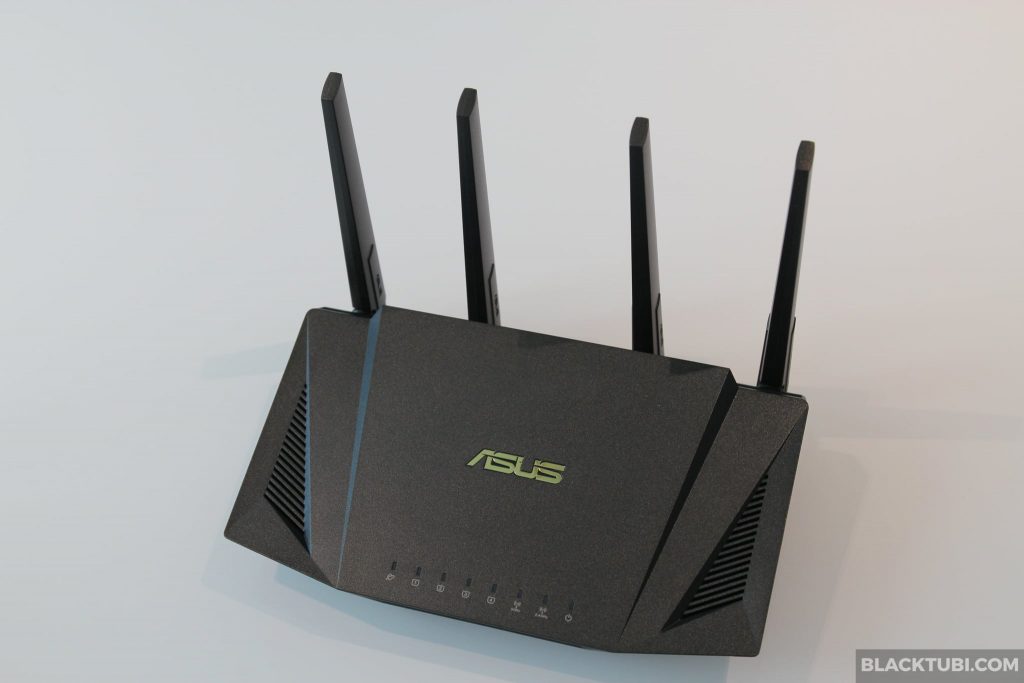
Wi-Fi 6 or Wireless AX is the next generation wireless technology after Wireless AC. Without going into the technical details, Wi-Fi 6 will improve Wi-Fi speed significantly when you are using it with a Wi-Fi 6 device. There are also multiple user experience improvements which promises to enhance battery usage on devices and offer improved stability.
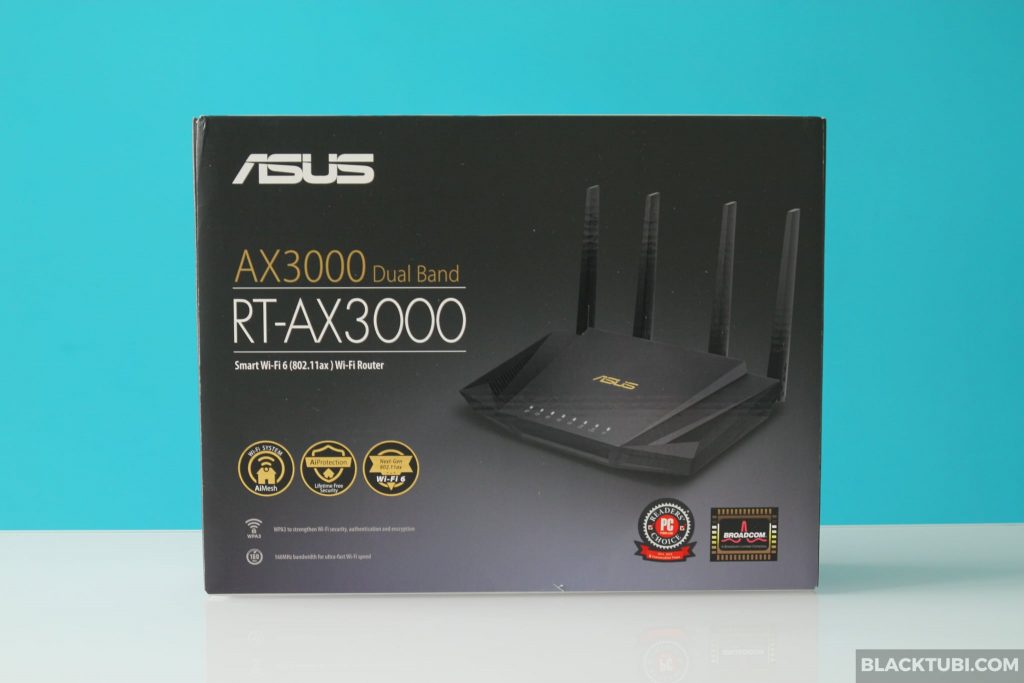
If you are using a Wi-Fi 6 device such as the iPhone 11 or Samsung Galaxy S10, getting a Wi-Fi 6 wireless router will greatly improve the Wi-Fi speed. It will also benefit older Wireless AC devices with improved Wi-Fi coverage and speed especially if you are coming from a much older wireless router.
Hardware and Specs
| Wireless 2.4Ghz | Wireless AX up to 574Mbps (40Mhz 2×2) |
| Wireless 5Ghz | Wireless AX up to 2402Mbps (160Mhz 2×2) |
| WiFi Features | OFDMA, MU-MIMO, Beamforming, AiMesh |
| CPU | Broadcom BCM6750 1.5Ghz Triple-Core CPU |
| RAM | 512MB |
| Ports | 1x Gigabit WAN port + 4x Gigabit LAN port |
| 1x USB 3.1 port |
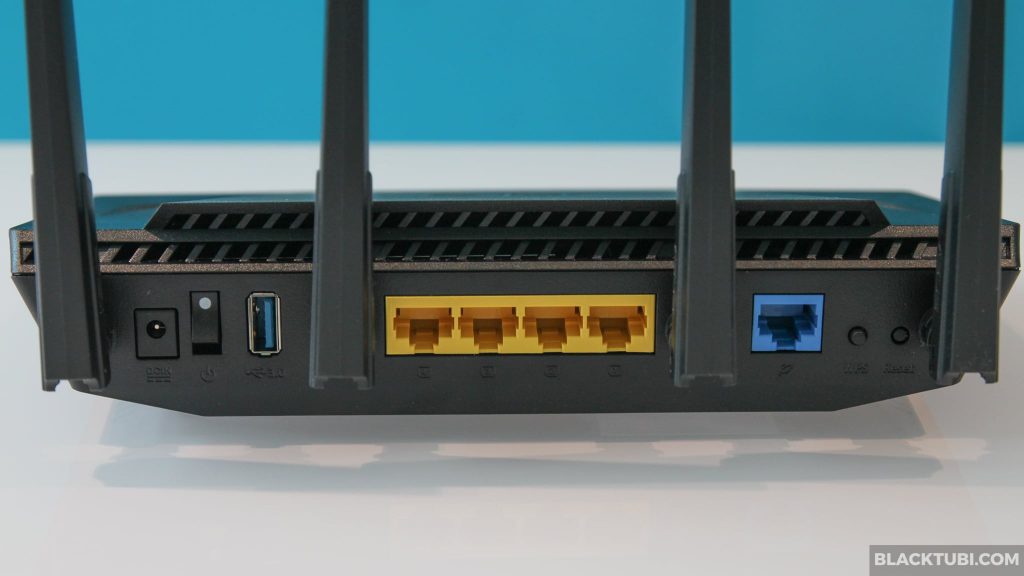
Unlike the RT-AX56U, the RT-AX3000 only comes with a single standard USB 3.1 port for printer sharing and file sharing feature on the network. The USB port can support printer sharing, file sharing and even use it as 4G Internet backup with a USB 4G modem.
Setup Guide
Setting up the RT-AX3000 is really easy by using ASUS router app available for both Android and iOS devices. The app will guide you how to connect the router to the modem. If you use Unifi, remember to select the Unifi-Home profile on the app.
I can complete the setup process under 15 minutes with the ASUS router app. If you use Unifi TV, your STB should be connected to LAN Port 4. There’s also a web interface if you prefer doing it the old way. You can refer to my ASUS Unifi setup guide here.
WiFi Performance
We will be testing the Wi-Fi performance of the RT-AX3000 using ASUS PCE-AX58BT Wi-Fi 6 AX3000 wireless adapter on a desktop and Samsung Galaxy S10. I will be running speedtest on my TIME Fibre 1Gbps Internet connection with 500Mbps upload speed.
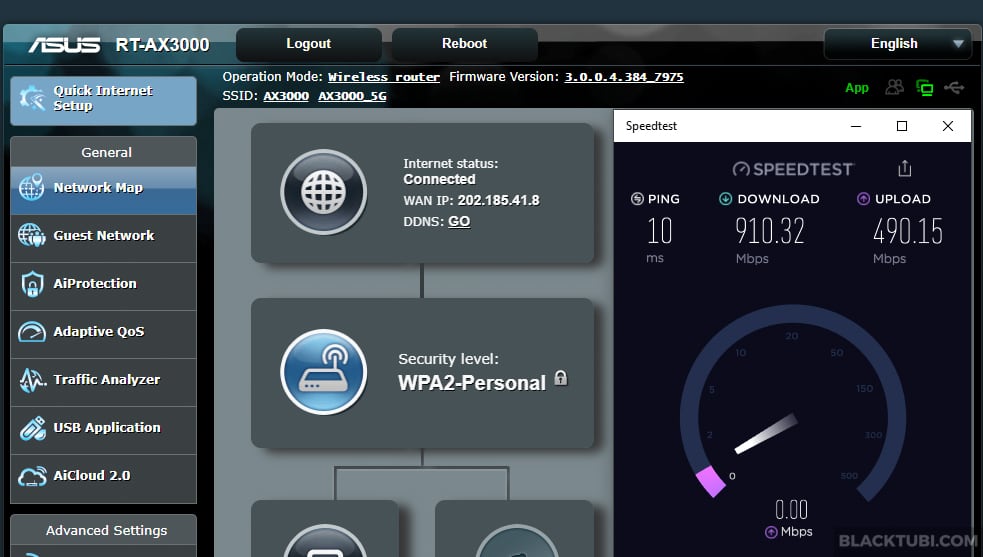
On the peak performance test, we placed the router at a close distance to my desktop to see what is the maximum Wi-Fi speed the router can reach on the best conditions. I am surprised that this affordable router can reach close to 900Mbps on a Wi-Fi speedtest.
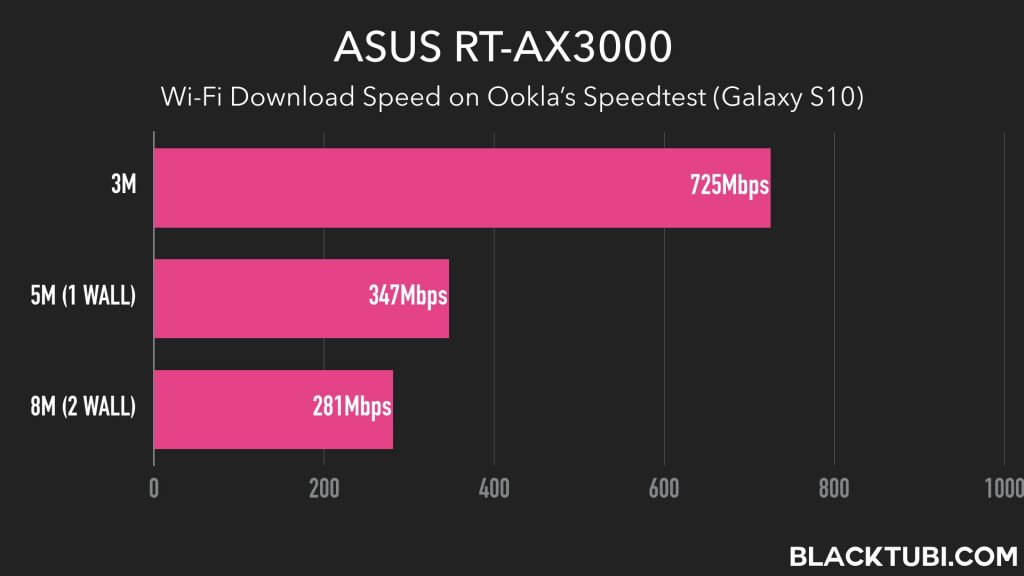
On the next test, I run the speedtest at multiple points to see how the router performs after several walls using the Galaxy S10. Like all routers, the speed dropped as I moved further from the router. However, the performance remain solid and is always above the 100Mbps mark.
RT-AX3000 + RT-AX56U AiMesh
The great part of the RT-AX3000 will be the AiMesh function. It lets you to link it with another AiMesh supported router to expand the Wi-Fi coverage. This will be useful if you are staying in a larger home
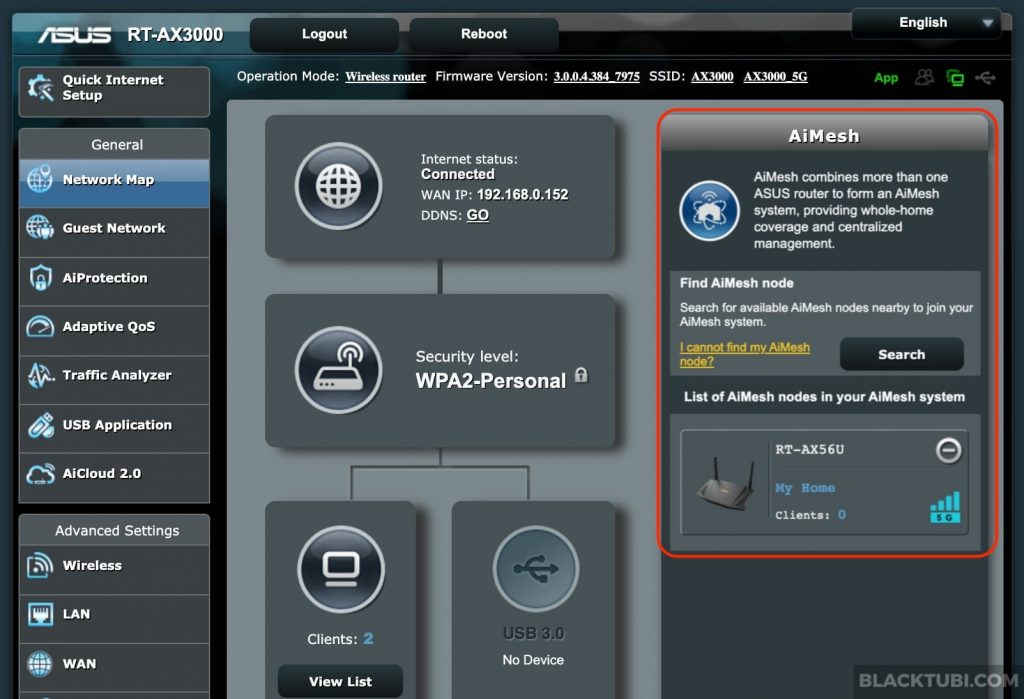
For my case, I completed setup by matching the RT-AX3000 with ASUS RT-AX56U to form a mesh Wi-Fi network. By doing so, I can have a much stronger 5Ghz Wi-Fi in certain parts of my house. Unlike using a Wi-Fi extender, AiMesh is more reliable and performs faster as it is better integrated.
Firmware and Features
ASUS RT-AX3000 runs the familiar ASUSWRT firmware which itself is a really huge deal. This is because ASUSWRT is one of the best router firmware in the market with a ton of features. Not to mention that it is frequently updated by ASUS once every few months.
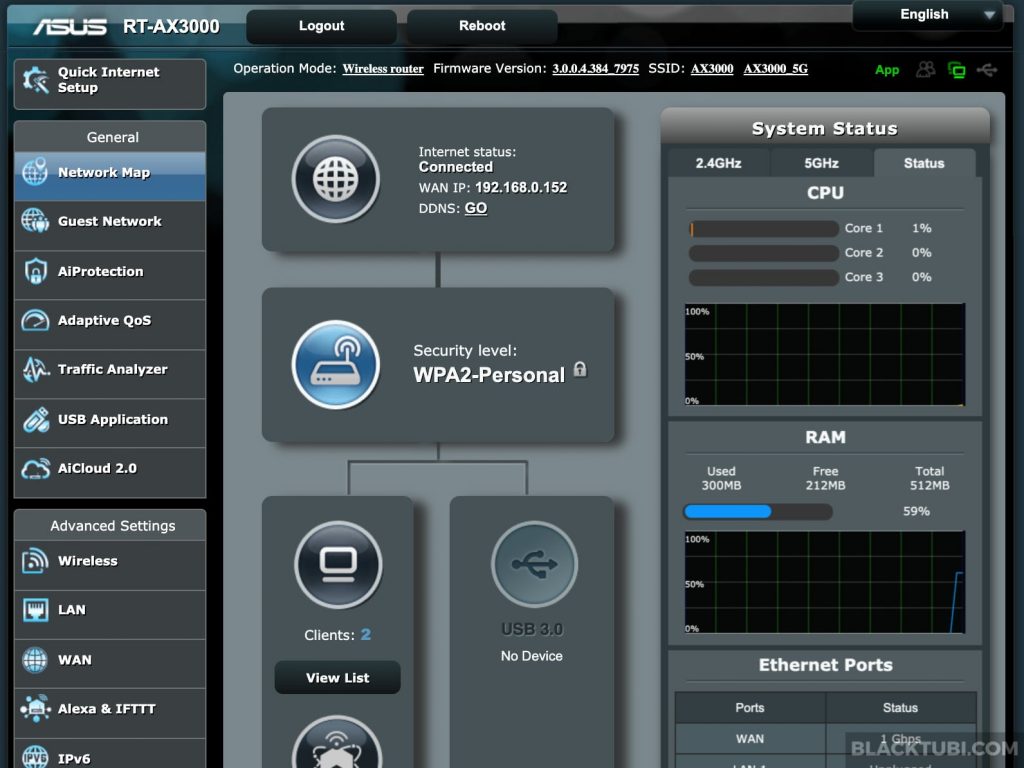
The navigation of the firmware is really simple and it shows your a ton of information about your network. Enthusiasts will really enjoy having so much information to know better about the network connection. There’s even a CPU usage meter to show the CPU usage.
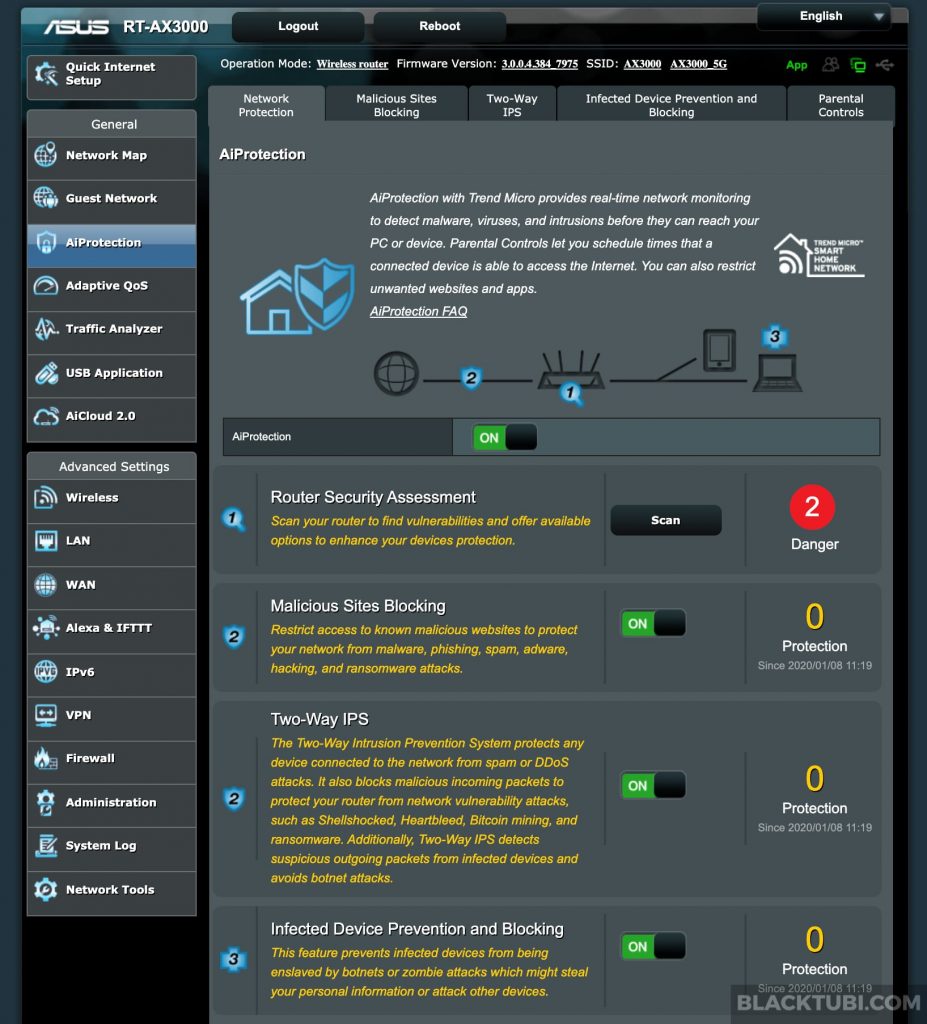
ASUS RT-AX3000 also included the AiProtection Pro Antivirus feature, powered by TrendMicro database. It is designed to block any website containing a malware or virus. In our testing, this feature works well and do not cause any decrease in Internet speed. We suggest to have this feature enabled.
There’s also the parental control feature which can block website for selected users based on a preset category. However, it can see some improvement as ASUS does not let you to customize which website you want to be blocked currently.
The build-in Adaptive QoS function lets you to select which device you want to have a higher priority. It also lets you to choose what kind of Internet traffic to enjoy a higher priority. It also comes with multiple QoS modes such as gaming and video conferencing to optimize the Internet for that usage.
In addition to the features I mentioned just now, there’s also some really advanced feature such as dual-WAN, VPN server, VPN client, download master and more. Most users will probably never need these but enthusiasts will appreciate these function.
ASUS RT-AX3000 also supported the ASUS Router app which is really feature packed as well.
Closing Thoughts
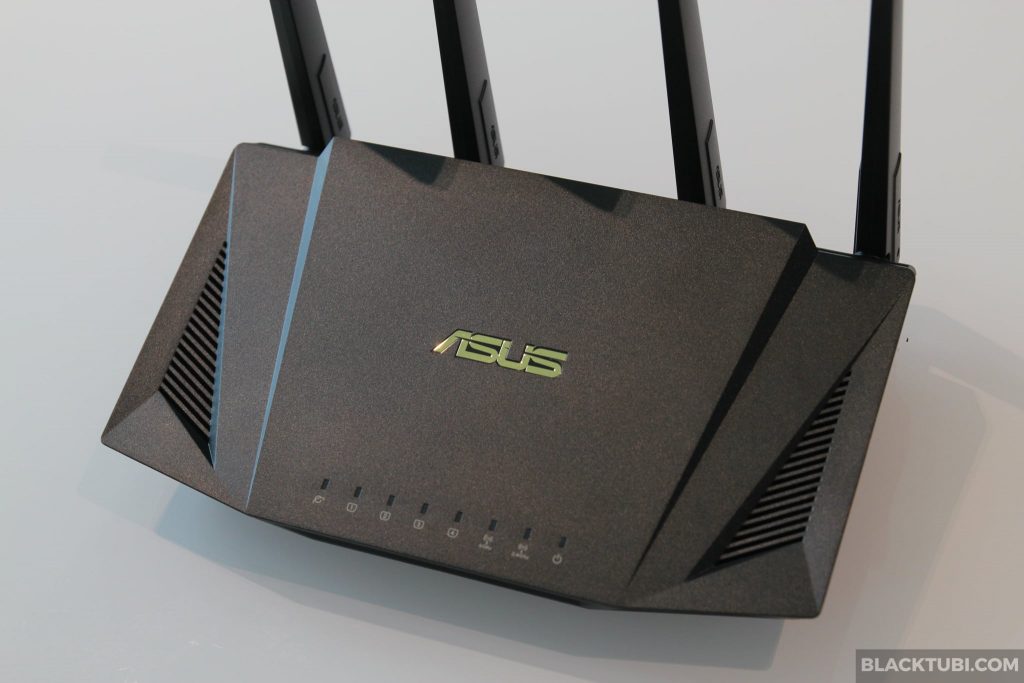
ASUS RT-AX3000 is a great wireless router. It offers really good Wi-Fi performance with fast Wi-Fi speed and strong Wi-Fi coverage. ASUSWRT comes with plenty of great features and customization. The AiMesh function is also handy as it lets you to use another ASUS AiMesh router to get a stronger Wi-Fi coverage at your home.
While the price is higher than competing models such as TP-Link Archer AX50, ASUS justify it with the comprehensive features of the ASUSWRT firmware. You won’t be disappointed by the ASUS RT-AX3000.
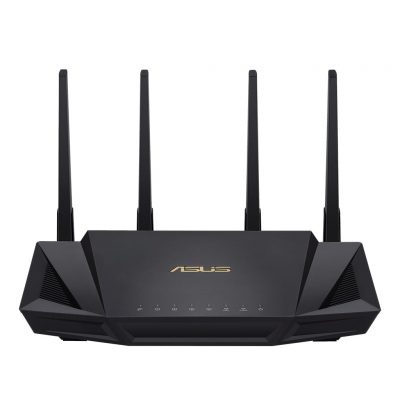
ASUS RT-AX3000
8.8
Tubi Rating
Good Stuff
- Strong WiFi coverage
- A lot of customization options
- Fast WiFi 6 performance
Bad Stuff
- 1 USB port only


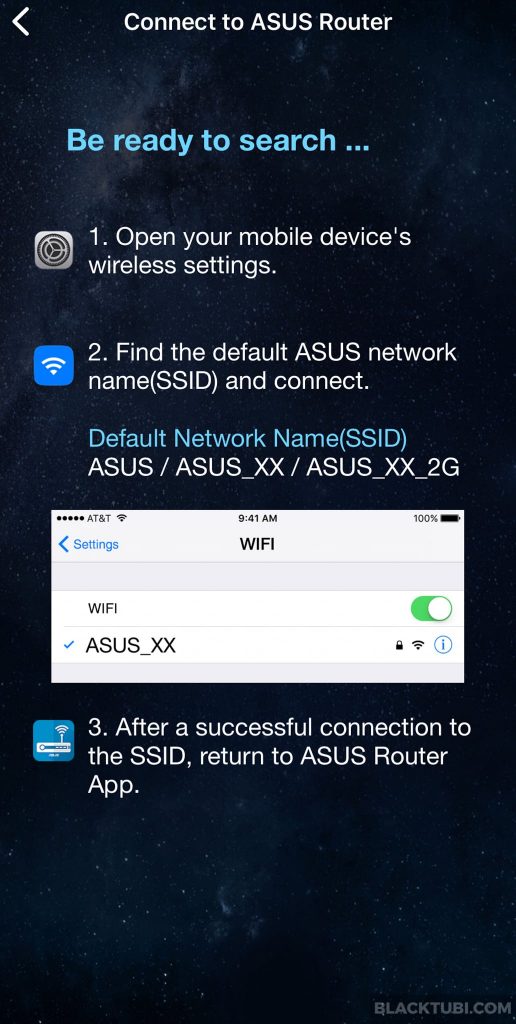
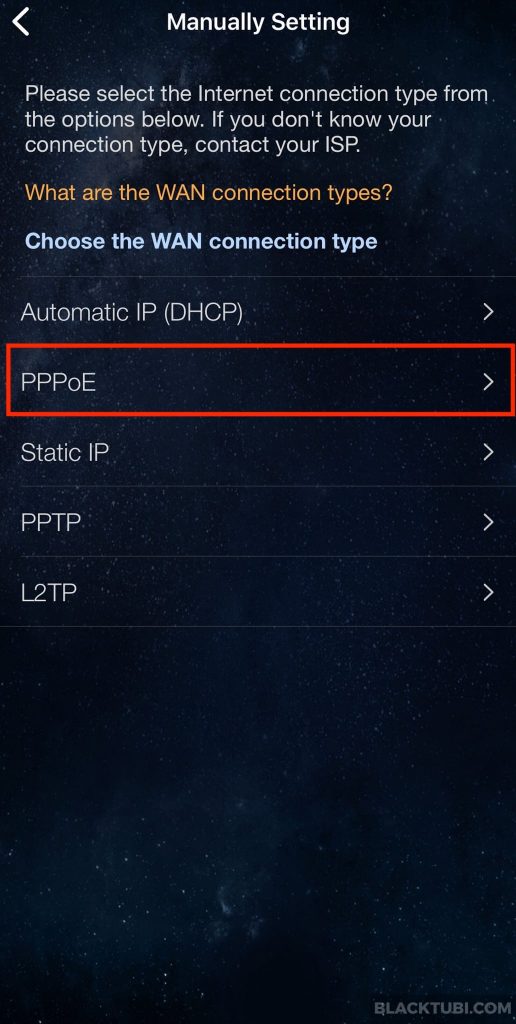
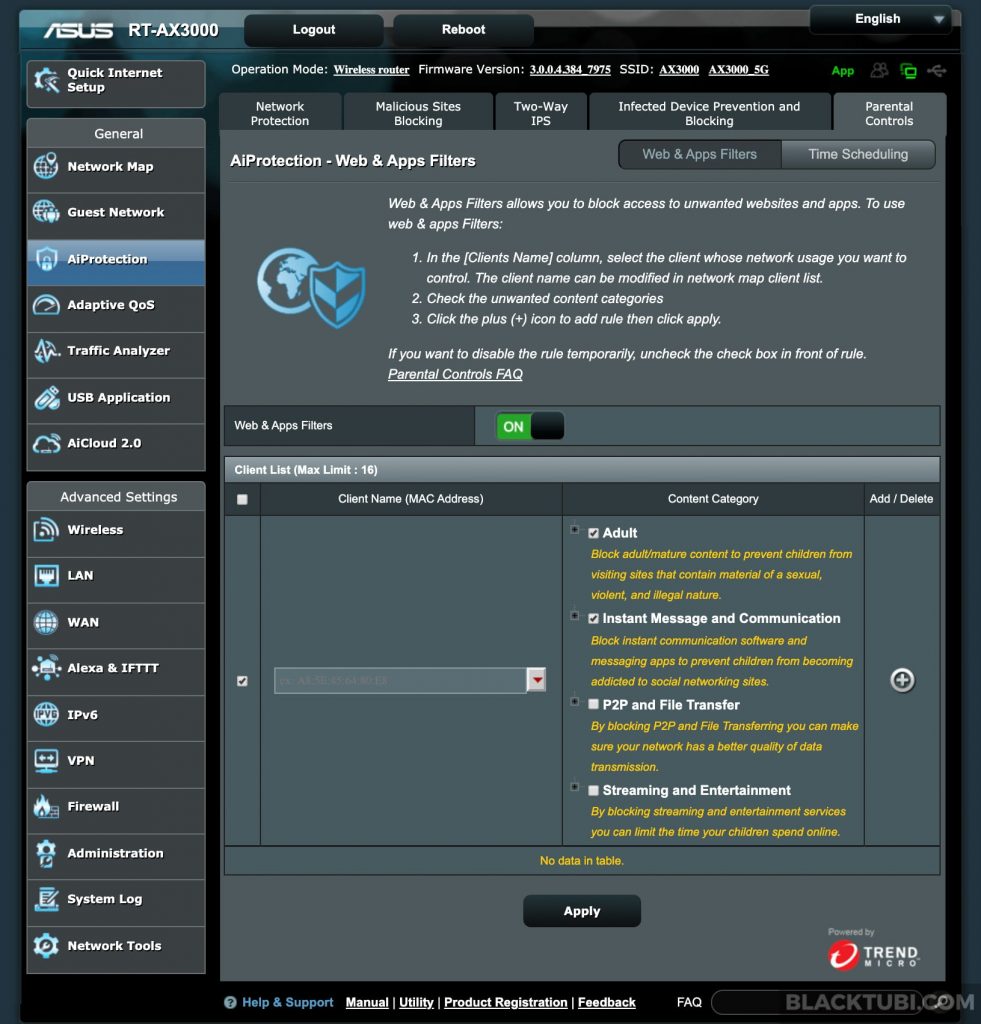
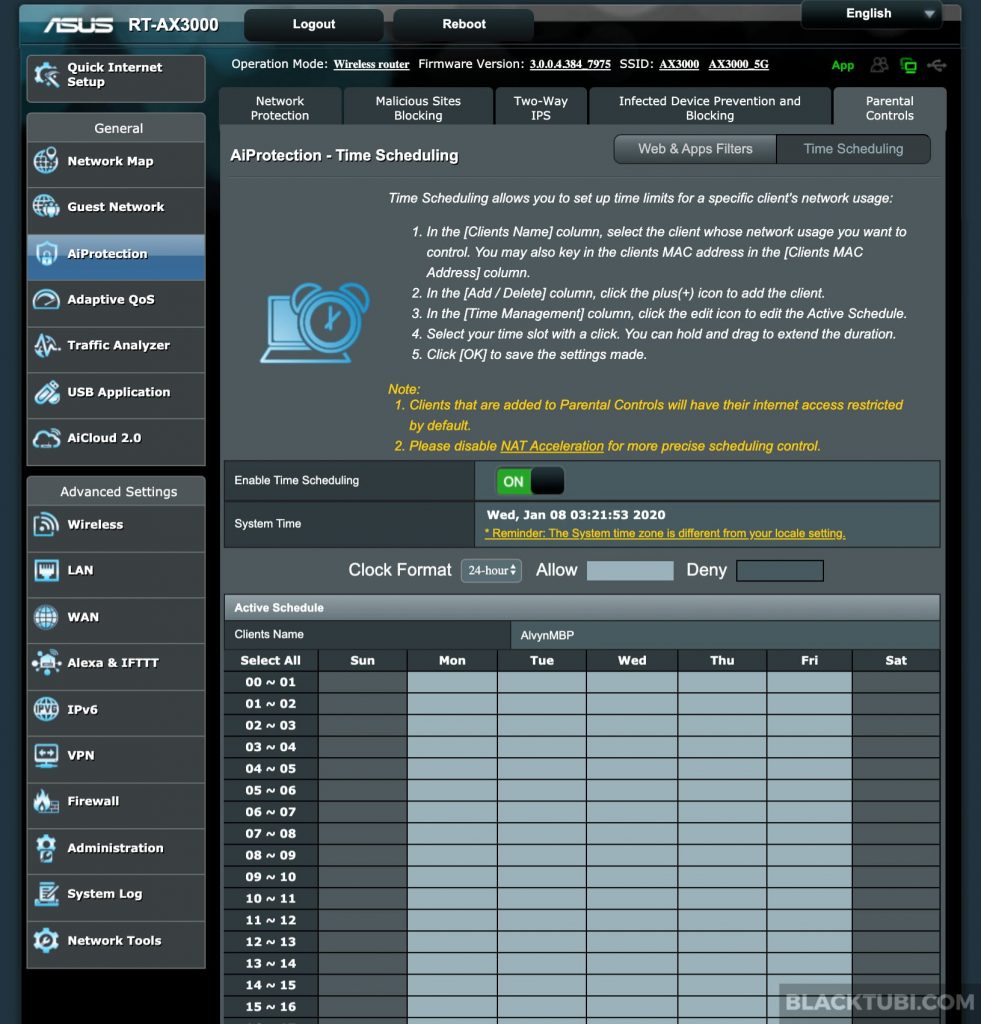
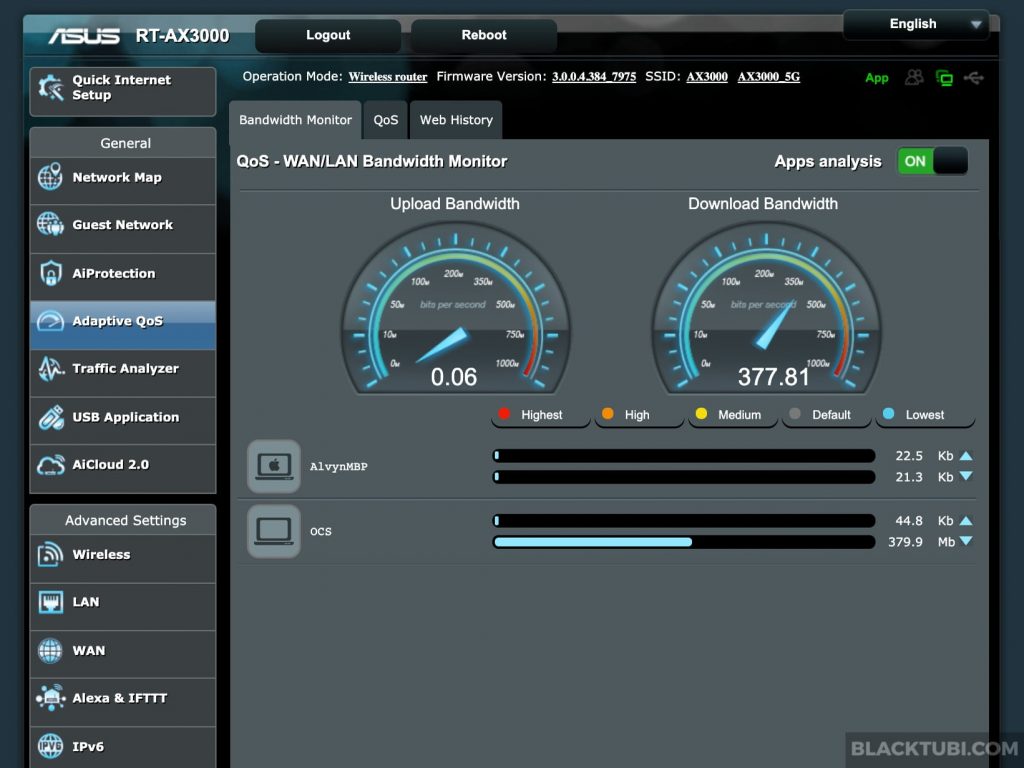
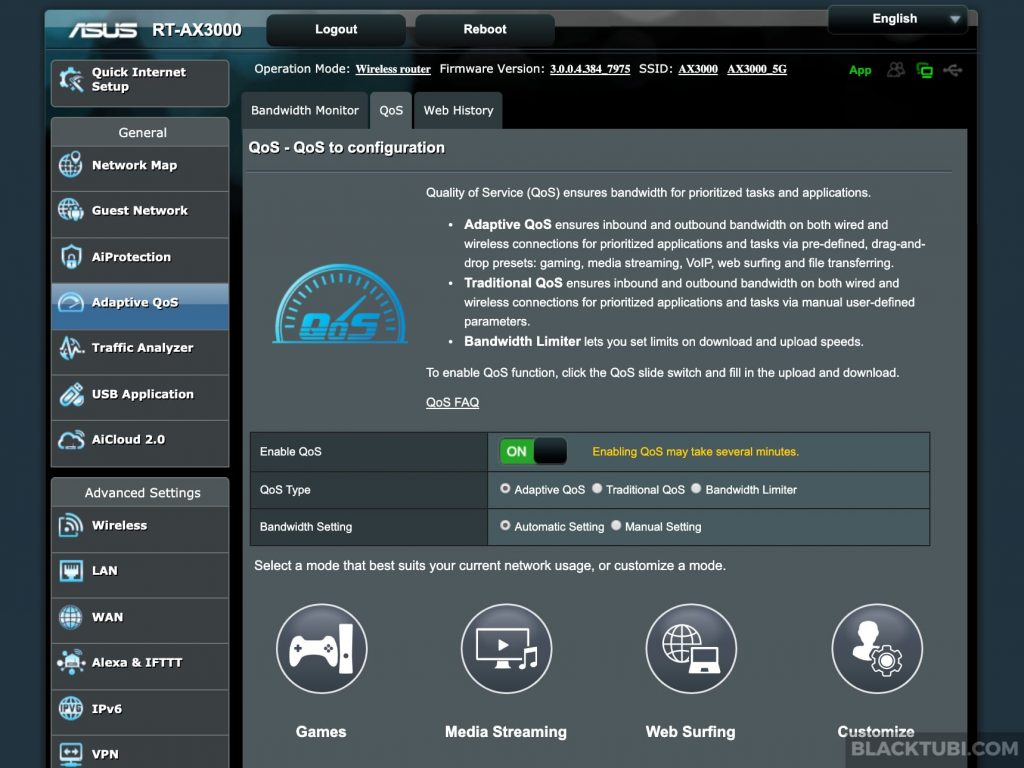
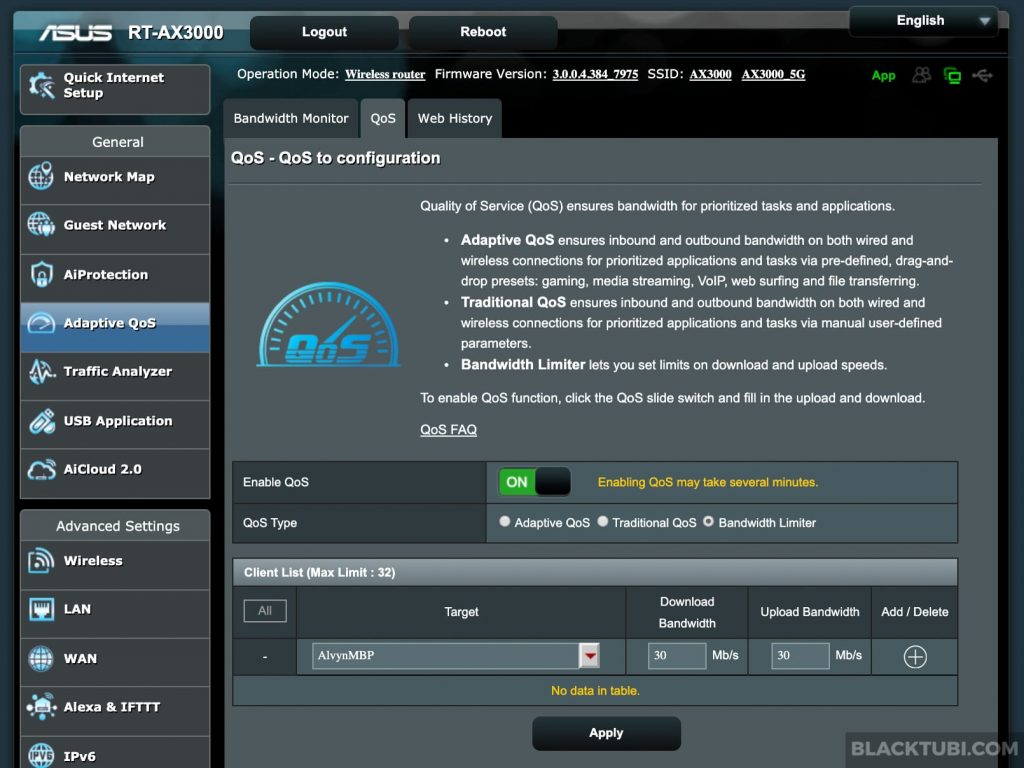
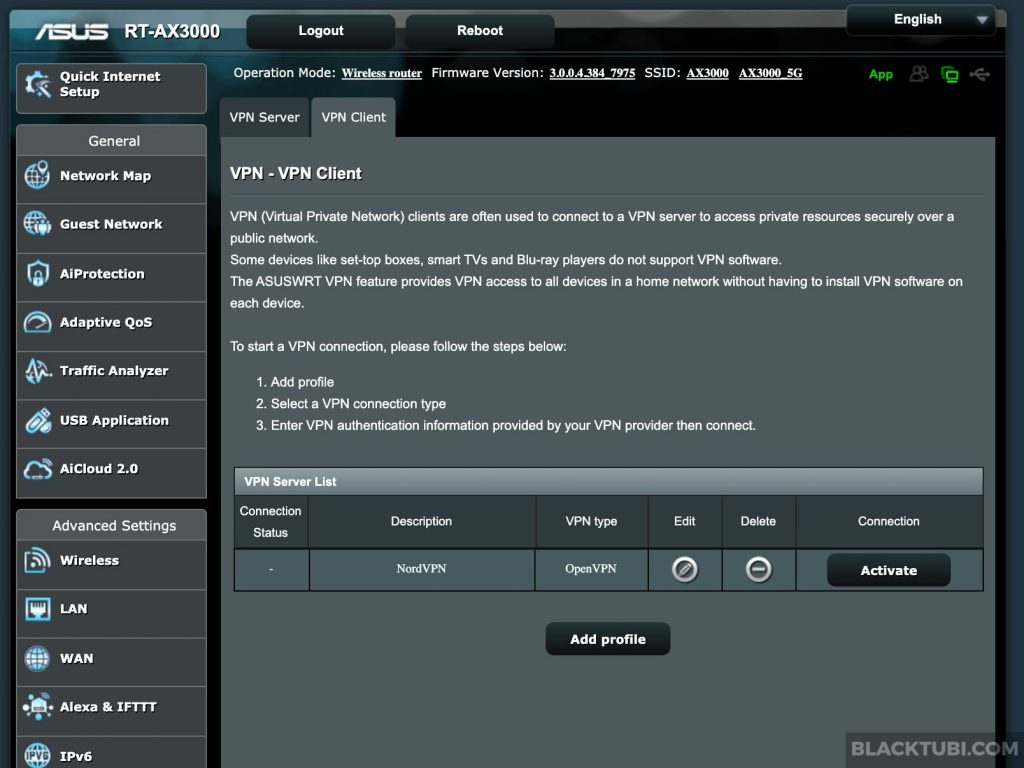
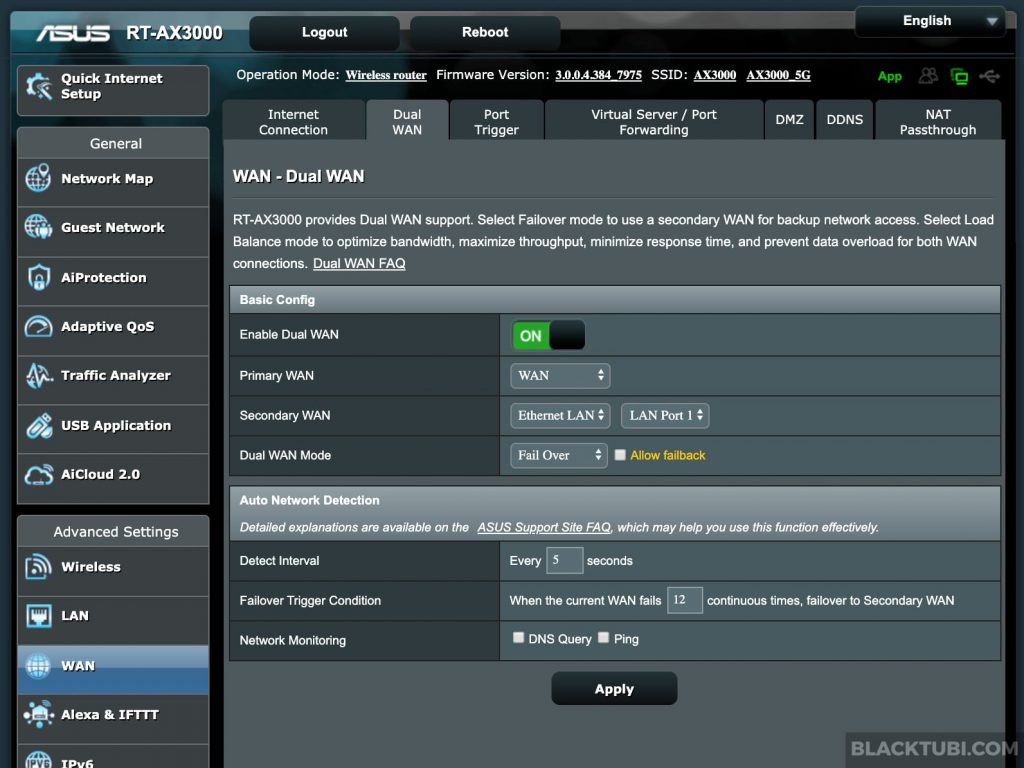
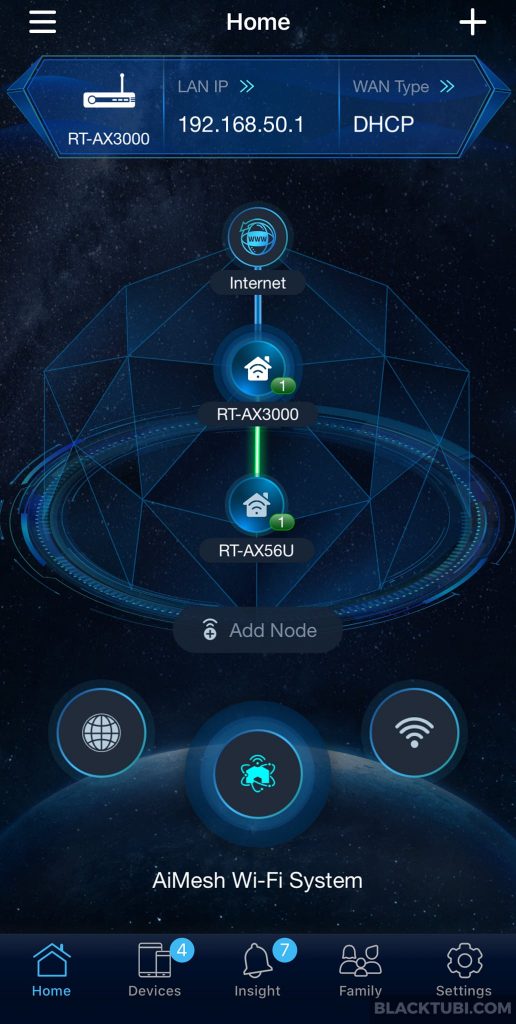
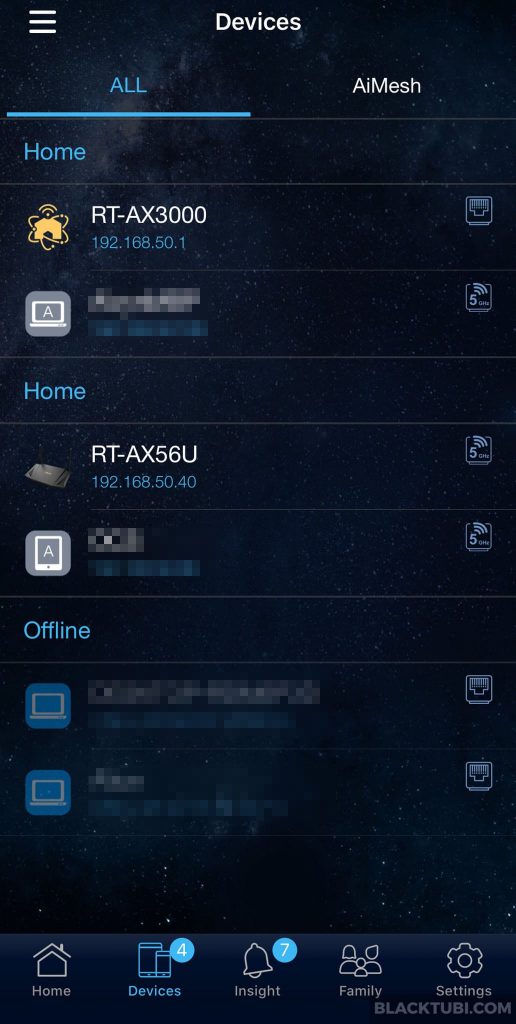
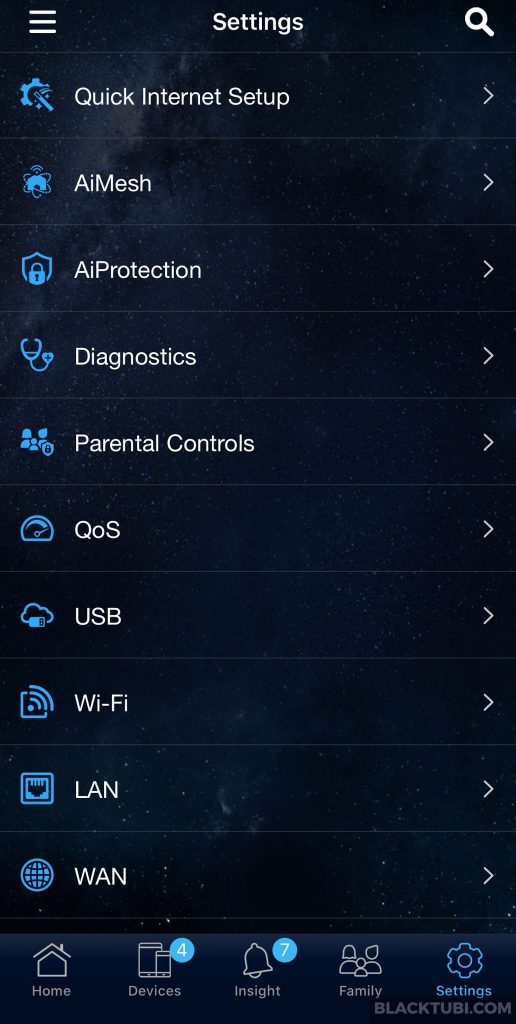
I upgraded my ax20 to AX3000 few days ago,seems like AX3000’s WiFi signal is way weaker than AX20…(10dbm lower 3 walls away)
Quite a disappointment performance wise, but being able to run Merlin with diversion is well worth over the decrease in wireless performance
Yeah, will be getting an AX86u once Allo is here
Turn off 160Mhz on your router unless you have devices that can take advantage of 160Mhz.
I turned 160mhz off, the wifi signal is a bit better but still significantly weaker than AX20.
Make sure the router is not using DFS channels. If it is still that weak, consider sending it back to ASUS.
What about this other ‘AX3000’ Asus ROG Strix designed for gamers, the GS-AX3000? I wonder how different its guts are from those of the RT-AX58U/RT-AX3000. Looks are unique too. I wonder if it’ll take the RT’s AX3000 Merlin FW.
It’s probably the same hardware with lights added. However, a proper test and side by side comparison is needed to verify the performance.
I have a question, I found this Cooler Master router cooling pad. Do you think that would help or is it a waste of money? This router have a USB port so I’m wondering if it’s strictly to data only or can be used to power up the fan as well.
I’ve been using this router for more than a year now. It’s an amazing router, coupled with my WiFi 6 PCIE card, I’m getting 500Mbps/100Mbps through wireless connection alone. WiFi 6 is truly a game changer.
Yes, you can use that to power up the fan. It does help to keep the router cool which is helpful for longetivity up to a certain extend.
I’m upgrading from Archer C1200 but stuck between these TP-Link Archer AX73 and Asus RT-AX3000. My current unifi plan is 300Mbps and currently live in 900sqft apartment with more than 20 devices connected to the router. Which model do you think suitable for my requirements?
Both will provide good WiFi coverage although I reckon the TP-Link Archer AX73 is slightly stronger but the ASUS comes with more features in the firmware. Choose according to your needs.
Ax3000 better than ac88u. Please comment
RT-AX3000 is a modern and better router. When using a new smartphone like an iPhone 12 Pro, the RT-AX3000 will outperform the RT-AC88U easily at any distance.
Hi, Thanks for the review.
I would like to build my AiMesh system to extend wifi coverage for my house.
I’m currently using Asus Blue Cave as my main (and the only one) router. Thought of buying Asus RT-AX3000 or Asus RT-AC86U. Can you please advise me:
Appreciate your soonest reply!
Thanks!
Use the Blue Cave as node. I suggest the RT-AX3000 instead.
Hi, would really appreciate your thoughts on Asus RT-AX56U router vs RT-AX3000 above… Is the latter worth the extra RM 300 ? Other reviews say the main difference is 160 Mhz support and better 5 Ghz performance for AX3000, but better CPU and 2.4 Ghz performance for AX56U. For now, planning to buy AX56U to replace TP-Link Archer C1200 stock Unifi router… do you believe this a good upgrade for RM 400 budget ? Many thanks
It’s not so simple. The RT-AX56U is already much better than C1200. The RT-AX3000 is even better due to better chipset used.
Thanks for sharing your thoughts ! For now, have decided to upgrade to RT-AX56U… as a balance between price and performance. Ideally, would prefer AX3000, but finding it difficult to justify the extra RM300 premium… Thanks again
is this better than the tp-link archer ax20? or ax 50?
The RT-AX3000 from ASUS performs slightly better than both TP-Link models you mentioned on the 5Ghz coverage and speed.
Hi. I just bought this Asus RT-AX3000 with intention to improve the wifi performance within the house while enjoying wifi 6 on my Galaxy Note 10+.
However the wifi speed has not improved much and below my expectation. Tested on both 2.4GHz & 5GHz. No issue to get the desired 500Mbps internet speed if tested using LAN cable. Any tips to improve the wifi performance of this router? Thank you in advance.
Perhaps you can try contacting ASUS support, some of their routers have a firmware bugs that can only be resolved with a beta firmware currently.
would it a good choice upgrade from dir-882?
Yup, huge improvement.
Thanks for the reply.
year end only plan to change so i will consider this model and keep checking on other.